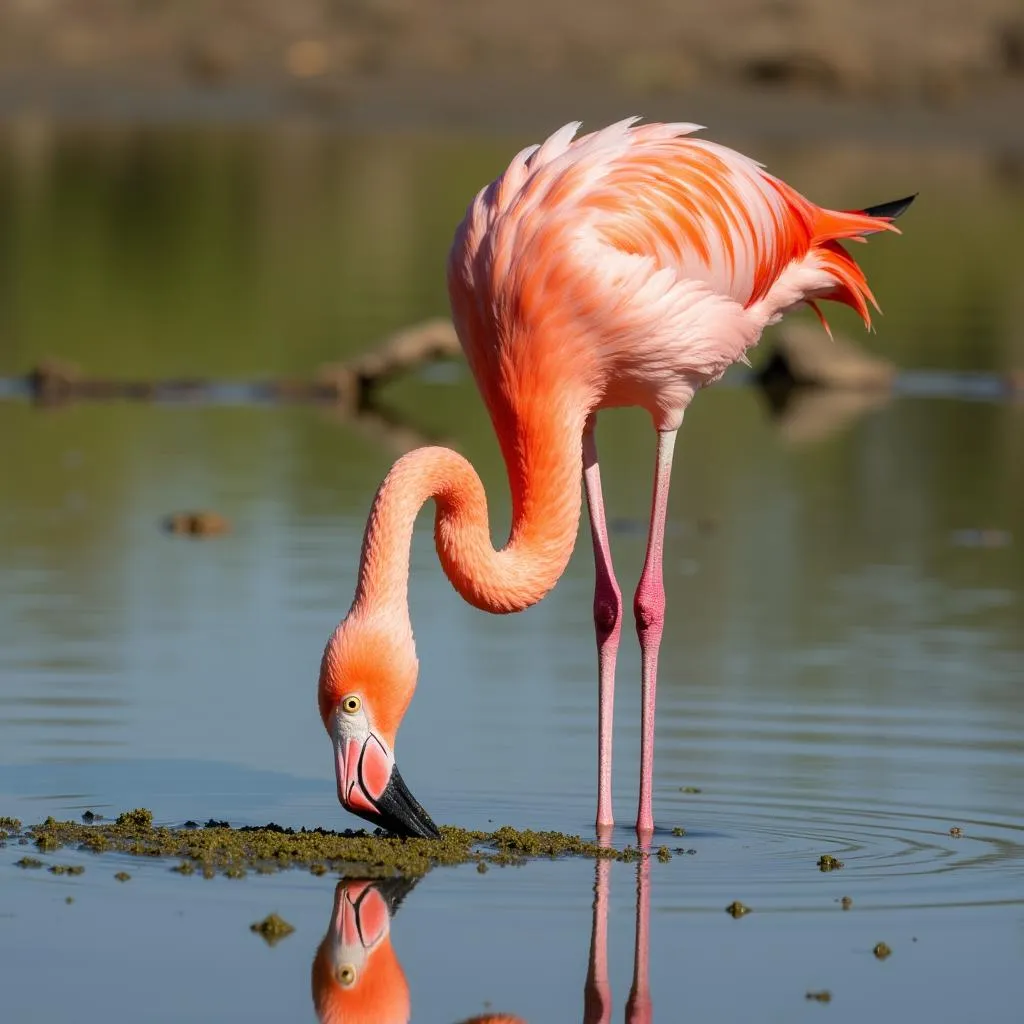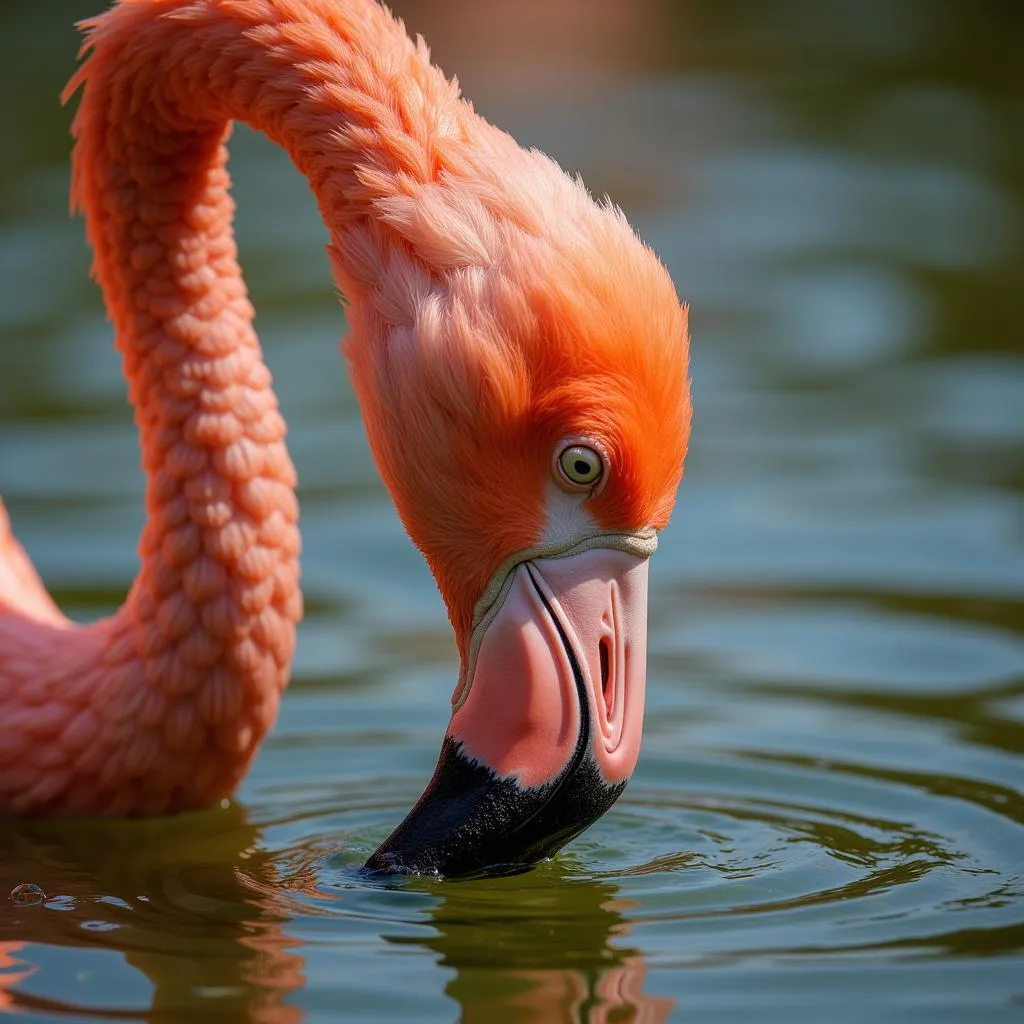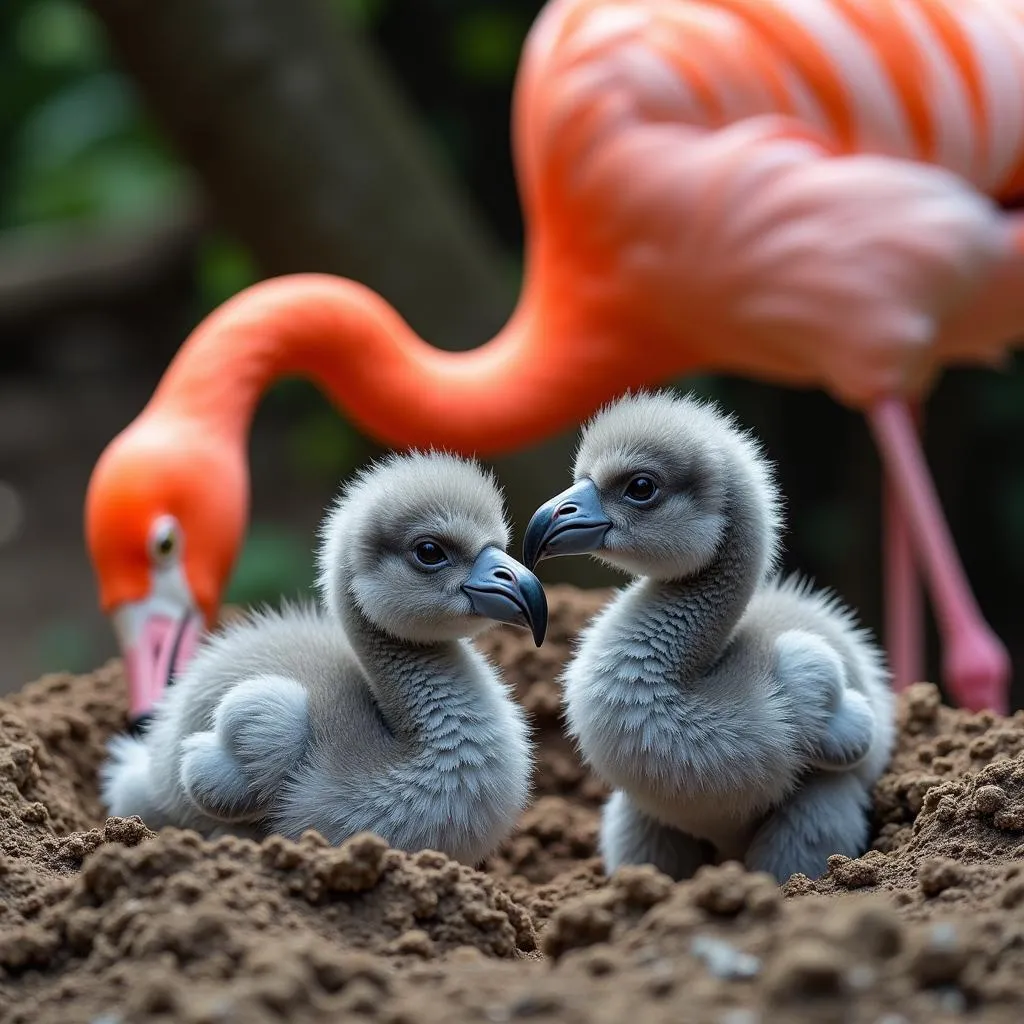African Flamingo Facts: Unraveling the Mysteries of These Pink Beauties
The African flamingo, scientifically known as Phoenicopterus roseus, graces the African landscape with its vibrant pink plumage and elegant stature. These fascinating creatures, often found in large flocks across various regions of Africa, are more than just a pretty sight. There’s a world of intrigue behind their graceful movements and unique lifestyle. Let’s delve into some interesting African Flamingo Facts that reveal the magic these birds hold.
The Science Behind the Pink: Why Are African Flamingos Pink?
One of the most common questions about African flamingos revolves around their striking pink color. Contrary to popular belief, they aren’t born with this rosy hue. So, what is the secret behind their vibrant appearance? The answer lies in their diet. African flamingos primarily feed on algae and brine shrimp, both rich in carotenoids. Carotenoids are pigments that give carrots their orange color and tomatoes their red hue.
As the flamingos ingest these organisms, their bodies extract the carotenoids. These pigments are then deposited in their feathers, skin, and even their legs, gradually turning them pink. The intensity of the pink can vary depending on the quantity and type of carotenoids consumed, with some flamingos displaying more vibrant hues than others.
 African Flamingo Feeding on Algae
African Flamingo Feeding on Algae
Adaptable Inhabitants: Where Do African Flamingos Live?
African flamingos exhibit remarkable adaptability when it comes to their habitat. They are highly social birds, often congregating in massive flocks, sometimes numbering in the thousands, around various water bodies across Africa. These include saline and alkaline lakes, lagoons, swamps, and even coastal mudflats. Some of their favored locations include the Great Rift Valley lakes in East Africa, such as Lake Nakuru and Lake Bogoria, as well as Etosha Pan in Namibia and Makgadikgadi Pan in Botswana.
These habitats, while seemingly inhospitable to other species, provide the perfect feeding and breeding grounds for African flamingos. Their ability to thrive in these environments underscores their resilience and adaptability.
Built for the Water: Unique Physical Adaptations
African flamingos have evolved a range of physical adaptations that make them perfectly suited for their aquatic lifestyle. Their long, slender legs are ideal for wading through shallow water, while their webbed feet provide stability on muddy surfaces.
Their most distinctive feature, their uniquely shaped beaks, acts as a highly specialized filter-feeding apparatus. Lined with lamellae, tiny plate-like structures, the beak filters out algae, brine shrimp, and other small organisms from the water.
 African Flamingo Filtering Food
African Flamingo Filtering Food
To feed, they sweep their heads from side to side, using their tongues to pump water through their beaks and trap their microscopic prey. This efficient feeding mechanism allows them to extract maximum nutrition from their food sources.
More Than Just a Flock: Social Structure and Behavior
Within their vast flocks, African flamingos exhibit fascinating social behaviors. While they appear to be a sea of pink, there’s an underlying social structure within these gatherings. They form strong pair bonds during the breeding season, engaging in elaborate courtship displays involving synchronized head flagging, wing salutes, and vocalizations.
Both parents participate in nest building, incubation, and chick rearing. They construct mud nests on the ground, often on islands within lakes for protection from predators. The chicks, initially gray in color, gradually develop their pink plumage as they mature.
 African Flamingo Chicks in Nest
African Flamingo Chicks in Nest
Threats and Conservation: Protecting the Pink Parade
Despite their adaptability and large numbers, African flamingos face several threats to their survival. Habitat loss due to human activities, such as agriculture and water diversion, poses a significant challenge. Pollution from industrial runoff and climate change also impact their food sources and breeding grounds.
Conservation efforts are crucial to safeguard these magnificent birds. This includes protecting their wetland habitats, promoting responsible tourism practices around flamingo populations, and raising awareness about the importance of their conservation.
Conclusion: Appreciating the Elegance of African Flamingos
African flamingos are more than just a beautiful sight; they are a testament to nature’s artistry and resilience. Their unique adaptations, fascinating behaviors, and crucial role in their ecosystems highlight the importance of understanding and protecting these avian wonders. As we continue to learn more about them, let us also strive to ensure that these pink parades continue to grace the African skies for generations to come.
FAQ:
1. What is the average lifespan of an African flamingo?
African flamingos can live for 20 to 30 years in the wild, with some individuals reaching up to 50 years in captivity.
2. Do African flamingos migrate?
While not all African flamingos migrate, some populations undertake seasonal movements in search of food and suitable breeding grounds.
3. What is the significance of the synchronized displays in flamingo flocks?
The synchronized movements during courtship displays are believed to strengthen pair bonds and enhance reproductive success.
4. What can I do to help protect African flamingos?
You can support organizations involved in flamingo conservation, practice responsible tourism in their habitats, and spread awareness about the threats they face.
5. Are African flamingos endangered?
While not currently classified as endangered, their populations are facing increasing pressure, highlighting the need for ongoing conservation efforts.
Want to Learn More About African Wildlife?
Discover more fascinating insights into the diverse animal kingdom of Africa. Read about the African Bor gots rate of 1 kg and the vibrant world of African American t shirts African American products.
Need assistance or have questions? Contact us at:
Phone Number: +255768904061
Email: kaka.mag@gmail.com
Address: Mbarali DC Mawindi, Kangaga, Tanzania.
Our dedicated customer support team is available 24/7 to assist you.
